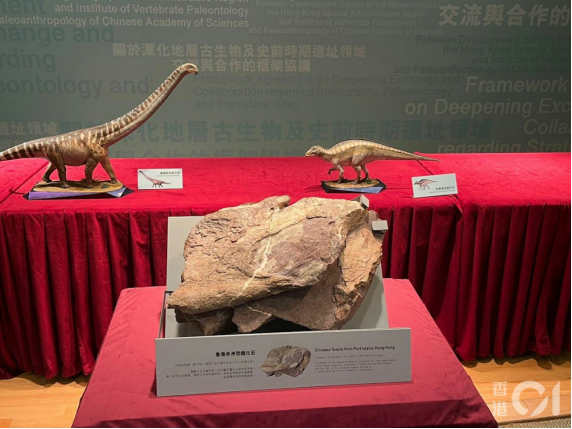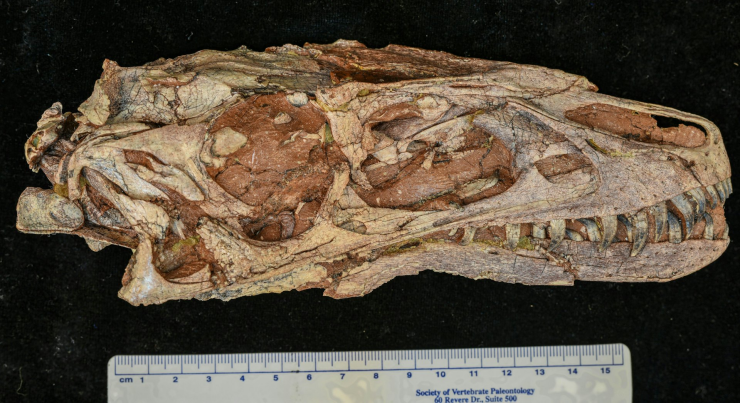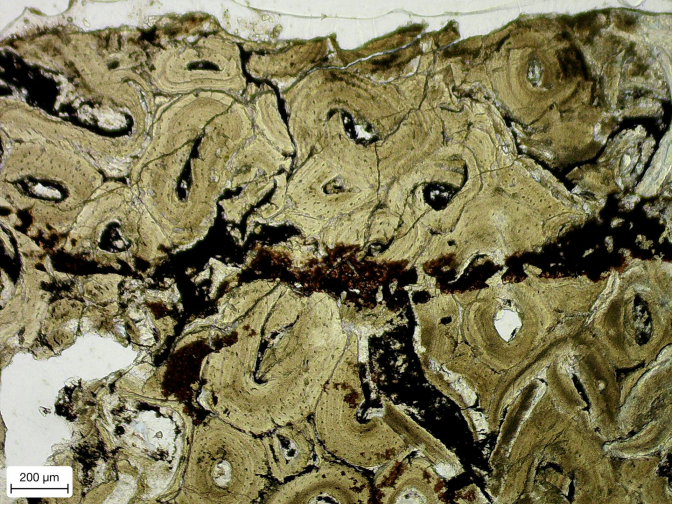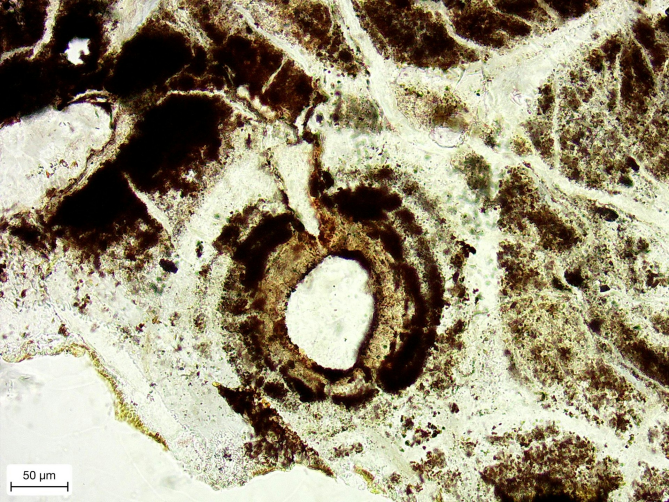The Development Bureau has announced the discovery of the first dinosaur fossil in Chek Chau Kong. It is preliminarily estimated that the dinosaurs were of the “Cretaceous period”, which dates back more than 100 million years, and concluded that there is a chance of sauropods or bird-hip dinosaurs. The fossil will be on display at the foyer of the Tsim Sha Tsui Heritage Discovery Centre as early as this Friday.
Some experts pointed out that the discovery of more dinosaur fossils in Chek Chau Kong may represent the case, and suggested that rock formations containing fossil vertebrates should continue to be excavated. The whole island will be cordoned off by the AFCD until the inspection team is completed.

Dinosaur fossils were first discovered in Chek Chau in March this year.
The AFCD earlier commissioned the China University of Geosciences to conduct a geological survey in Chek Chau. During a team’s visit to Chek Chau in March this year, the team found that the rock formation was suspected to contain fossil vertebrates. Following notification by the AFCD to the AMO, the Development Bureau conducted a site visit to Chek Chau in June and August this year with staff of the Institute, the AMO and the AFCD, and collected samples. Experts from the Institute of Vertebrate Paleontology and Paleoanthropology, Chinese Academy of Sciences, made bone tissue sections of the samples, observed them under a microscope and analyzed them with software, which part is currently unknown.
Ancient spine experts: scattered bone distribution, in situ death is low
After studying the vertebrates, preliminary estimates put them in the Cretaceous period, from 145 million to 66 million years ago, and suggest that the fossils may have been sauropods or bird-buttocks. Peirui, an associate researcher at the Institute of Vertebrate Paleontology, speculated that the dinosaur may have been buried by sand and stone after death, washed away by water, and then buried again at the site of its discovery. Because the dinosaur bones found are scattered and broken and weathered, they are less likely to die and be buried in situ.
The Secretary for development, Ning Hanhao, said the discovery of dinosaur fossils was of great significance as it provided new evidence for the study of paleoecology in Hong Kong. The Commissioner for Heritage of the Development Bureau, Dr Chiang Chi-ho, said that in collaboration with the Institute of Paleontology, AFCD, the University of Geosciences and local universities, efforts would continue to be made to promote research, science popularization and publicity on dinosaur fossils.


With immediate effect, Chek Chau Island will be cordoned off and only experts will be allowed to land. Offenders may be prosecuted
To facilitate the follow-up study visit, the Director of Agriculture, Fisheries and Conservation has cordoned off Chek Chau Island under the country parks and Special Areas Regulation (cap. 208A) with immediate effect. Except for experts, no landings will be allowed until the study visit is completed. Offenders are liable to prosecution and, upon conviction, to a maximum fine of $2,000 and imprisonment for 3 months.
Ninghanhao added that the waters around Chek Chau Island were very rough, and the time of the expedition would depend on the weather. It was not known when the expedition would be completed.
The fossils will be on display to the public as soon as Friday
The AMO will hold a talk at the Hong Kong Heritage Discovery Centre tomorrow afternoon. Participants can take the lead in viewing the dinosaur fossil. The dinosaur fossils will be on display at the foyer of the Discovery Centre from this Friday (25 May) . The museum will also set up a temporary workshop in the courtyard at the end of this year to allow the public to watch the experts’ work on the specimens.
The Development Bureau and the Institute signed a Framework Agreement on deepening exchanges and co-operation in the field of stratigraphic palaeontology and prehistoric sites today. Ning Hanhao said that under the framework agreement, both sides will establish a standing mechanism, to promote stratigraphic, paleontological and paleontological research and training in Hong Kong.
